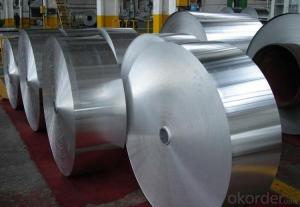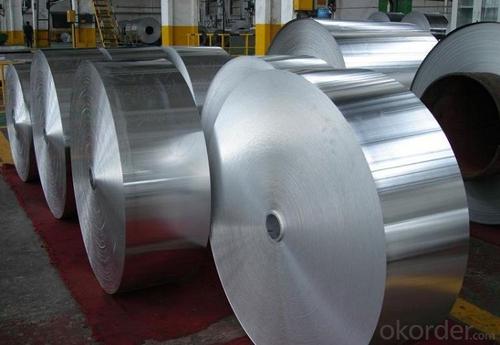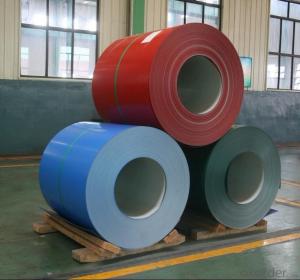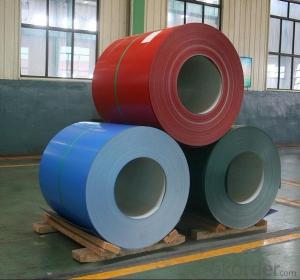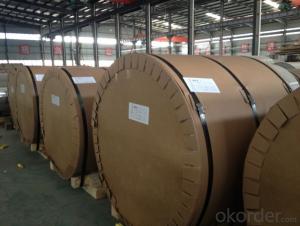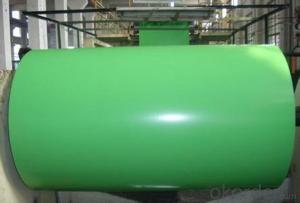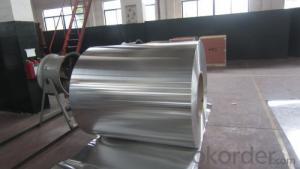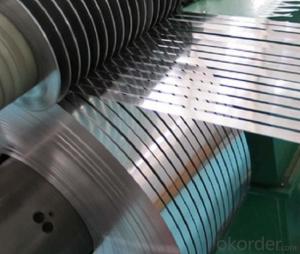Decorative Aluminum Coil for Transformer Winding
- Loading Port:
- Shanghai
- Payment Terms:
- TT OR LC
- Min Order Qty:
- 2.5
- Supply Capability:
- 5000 m.t./month
OKorder Service Pledge
OKorder Financial Service
You Might Also Like
Specification
Aluminium Strips for Transformer Winding
l Product Specification
SALES | SHIPPING TERM | SAMPLE DELIVERY | DELIVERY DATE | PORT |
Aluminum Plain Sheet | FOB or CIF | 2-7 days | 15-20 days | Shanghai |
Alloy | Temper | Thickness (mm) | Width (mm) | Price(USD) |
Series 1 | O H111 T6 T651 H12 H14 H16 H18 H19 H22 H24 H26 H32 H34 H36 H38 etc | 0.16-200mm | 20-2300mm | US$. 2000-2800 |
Series 3 | ||||
Series 5 | ||||
Series 6 | ||||
Series 8 |
l Packaging & Delivery
Packaging detail: Seaworthy Export Standard Wooden Pallet and with damp proof film as first layer, Kraft paper as second layer, Cardboard card as third layer Criss-cross steel strip to fix outside
Delivery detail: About 15 days
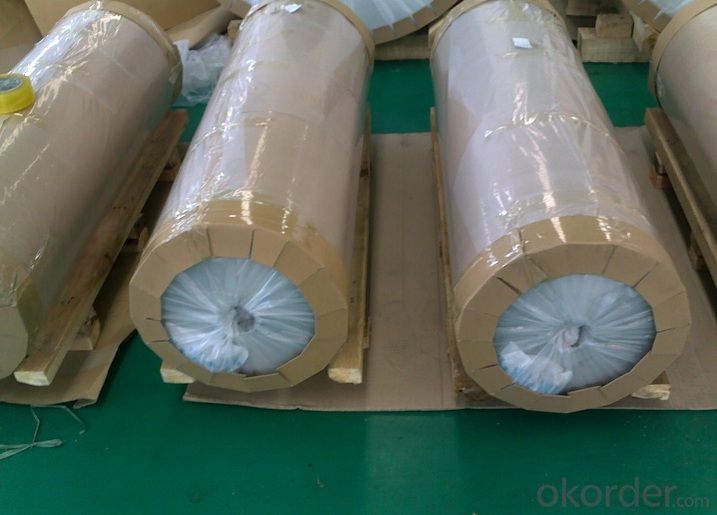
l Company Profile
CNBM International Corporation, China National Building Materials (Group) Corporation, is one of the largest companies in China building material & equipment industry, with 42,800 employees and sales in 2005 of US Dollar 4.395 billion. In 2006, China National Building Material Company Limited was listed on Hong Kong Stock Market with the stock code as 3323. |
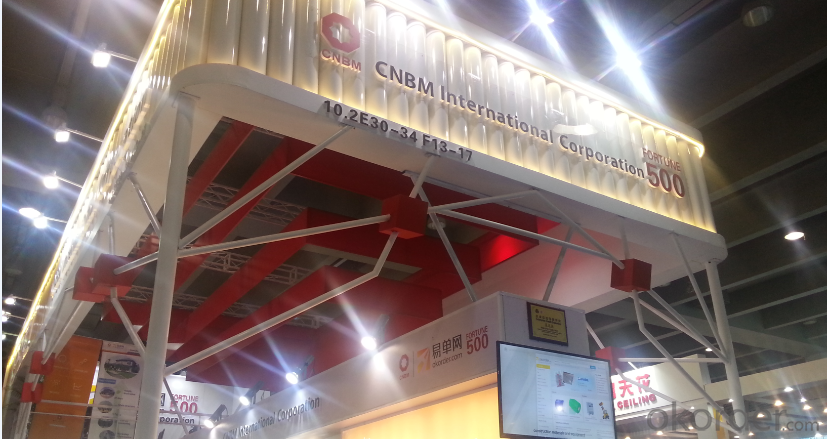
l CNBM World Wide
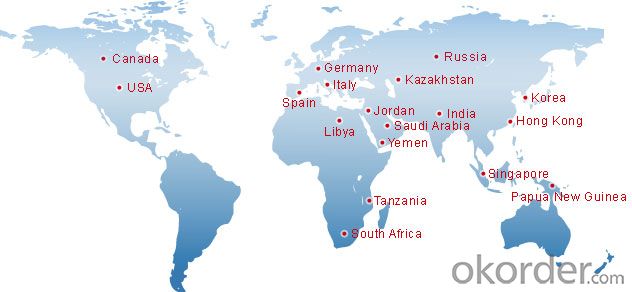
l Products Images
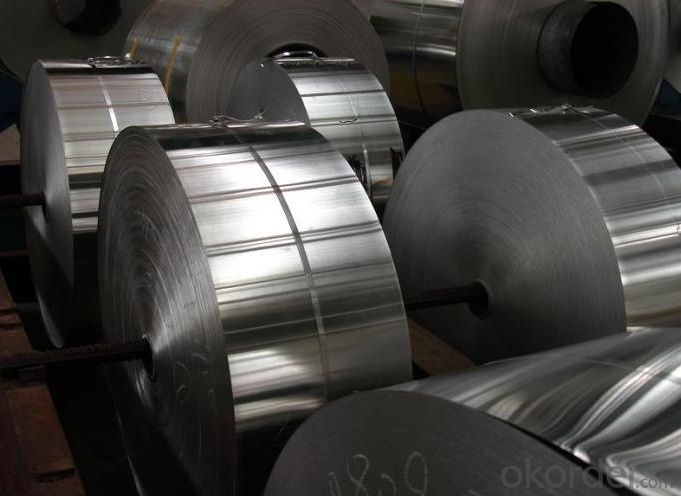
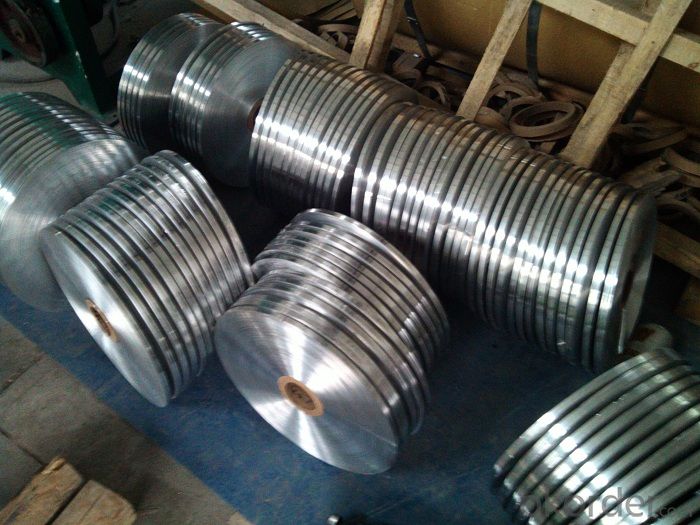
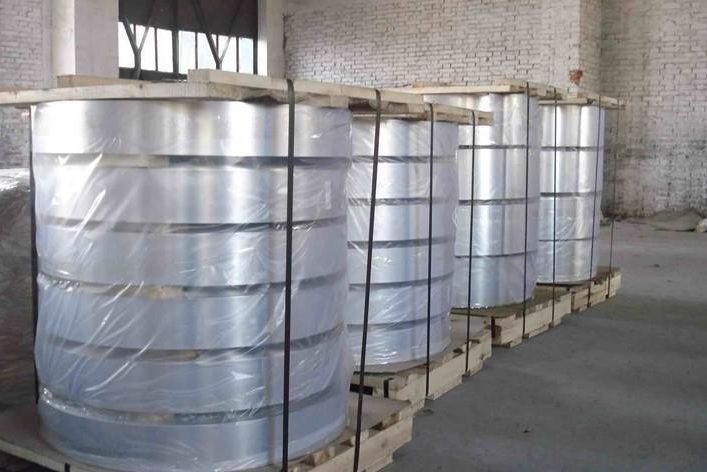
l Certificates
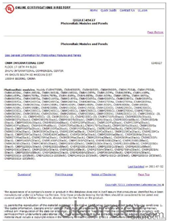
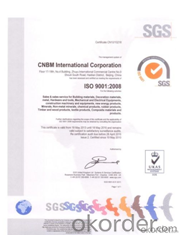
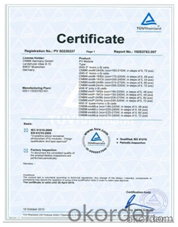
l FAQ
Q: Do you provide free samples?
A: Yes, free samples will be sent to you on freight at destination.
Q: Can I get your latest products catalogue?
A: Yes, it will be sent to you in no time.
Q: What is the MOQ?
A: 2.5 tons
Q: What are your payment terms?
A: We accept L/C, T/T
- Q: Difference between aluminium roll gate and iron roll gate
- and the iron roll gate weight, motor power, electricity, but the door of high strength, better safety performance.
- Q: Are aluminum coils suitable for architectural facades?
- Yes, aluminum coils are suitable for architectural facades. They are lightweight, durable, corrosion resistant, and can be easily formed into various shapes and sizes. Additionally, aluminum coils offer a wide range of finishes and colors, making them a versatile choice for architectural facades.
- Q: What are the common surface finishes available for aluminum coils?
- Aluminum coils come in various surface finishes, each with its own advantages and aesthetic appeal. One popular option is the mill finish, which is the standard finish applied directly from the mill. It provides a smooth and shiny surface without any additional treatments or coatings. Another common choice for aluminum coils is the anodized finish. This involves an electrochemical process that creates a durable and corrosion-resistant layer on the aluminum's surface. Anodized finishes can be clear or colored, offering a wide range of design options. Painted or coated finishes are also widely used for aluminum coils. This involves applying a layer of paint or coating to enhance appearance and protect against corrosion. The color, gloss level, and texture of painted finishes can be customized to suit different design needs. Brushed finishes are often employed for aluminum coils, creating a pattern of fine lines or scratches on the surface. This unique texture adds visual interest to various applications. Laminating is another option for aluminum coil finishes. It involves applying a thin layer of film or other material to provide additional protection against scratches, UV rays, and other elements. The laminated finish can be glossy or matte, depending on the desired look. In summary, the available surface finishes for aluminum coils include mill finish, anodized finish, painted or coated finish, brushed finish, and laminated finish. Each finish has its own advantages and can be chosen based on specific requirements such as aesthetics, durability, corrosion resistance, and customization options.
- Q: What’s the standard of tensile strength and ductility of aluminum coil 3003?
- Detailed description can help resolve problems quickly. Performance and status is a related. As aluminum coil is usually semi-hard, the tensile strength is greater than or equals 150, ductility is greater than or equals 12.
- Q: What are the width tolerances for aluminum coils?
- The width tolerances for aluminum coils can vary depending on the specific application and industry standards. However, in general, the standard width tolerances for aluminum coils typically range between +/- 0.005 inches to +/- 0.020 inches. These tolerances ensure that the width of the aluminum coil falls within an acceptable range and meets the required dimensions for the intended use. It is worth noting that tighter tolerances may be achievable depending on the specific manufacturing processes and equipment capabilities. Therefore, it is essential to consult the appropriate industry standards and specifications to determine the exact width tolerances required for a particular application.
- Q: Are aluminum coils suitable for solar panel frames?
- Yes, aluminum coils are suitable for solar panel frames. Aluminum is lightweight, corrosion-resistant, and has excellent thermal conductivity, making it an ideal material for solar panel frames. It offers durability, easy installation, and efficient heat dissipation, ensuring the longevity and optimal performance of solar panels.
- Q: Can aluminum coils be used for electrical conductivity purposes?
- No, aluminum coils cannot be used for electrical conductivity purposes. While aluminum is a good conductor of electricity, it is not suitable for use in coils specifically designed for electrical conductivity. Aluminum has a relatively high resistance compared to other materials such as copper or silver, which are commonly used for electrical conductivity purposes. Additionally, aluminum has a lower melting point than copper, which can lead to overheating issues when used in coils for high electrical currents. Therefore, it is more common to use materials like copper or silver for electrical conductivity purposes, especially in applications where high conductivity and low resistance are required.
- Q: How are aluminum coils used in the manufacturing of appliances?
- Aluminum coils are widely used in the manufacturing of appliances due to their unique properties and versatility. They are primarily used in the production of heat exchangers, which are essential components in appliances such as refrigerators, air conditioners, and heaters. One of the main advantages of aluminum coils is their excellent thermal conductivity. This means that they can efficiently transfer heat from one area to another, making them ideal for applications where heat exchange is required. In appliances, aluminum coils help in cooling or heating processes by transferring heat between the refrigerant or coolant and the surrounding air or water. Furthermore, aluminum coils offer superior corrosion resistance compared to other metals, making them highly suitable for appliances that come into contact with moisture or other corrosive substances. This property ensures the durability and longevity of the appliances, as the coils are less likely to rust or corrode over time. Moreover, aluminum coils are lightweight, which contributes to the overall efficiency of appliances. The lightweight nature of aluminum reduces the energy required for transportation and installation, making it a more sustainable choice. Additionally, the lightweight coils allow for more compact designs, maximizing space utilization in appliances. Another advantage of aluminum coils is their malleability. They can be easily shaped and formed into different sizes and configurations, allowing for customized designs that suit specific appliance requirements. This flexibility in design enables manufacturers to create efficient heat exchangers that fit into the limited space available in appliances. In summary, aluminum coils are used in the manufacturing of appliances due to their excellent thermal conductivity, corrosion resistance, lightweight nature, and malleability. These properties make them an ideal choice for heat exchangers, which are crucial components in appliances that require efficient cooling or heating processes.
- Q: should i have a paper between aluminum siding and the wood
- Aluminum siding can be vented with round pop-in perforated vent plugs, these are very easy to install. I would really like to know how do you know there is condensation behind your siding?
- Q: A cube of solid aluminum has a volume of 1.00 m3 at 20°C. What temperature change is required to produce a 130 cm3 increase in the volume of the cube?
- The linear expansivity of aluminum is 23 x10^-6 /K. Bulk expansivity is 3 x 23 x10^-6 / k For 130 [cm^3] the temperature required is 130 [cm] ^3/ 3 x 23 x10^-6 = 0.00013/[3 x 23 x10^-6] = 1.88 K ========================= If each side of the cube of side 1m expands by e, then its new volume = [1+e]^3 = 1 + 3e + 3e^2 +e^3. Neglecting high powers of e as negligible, the increase in volume is 3e. But e = 23 x10^-6 x rise in temperature 3e = 3*23 x10^-6 x rise in temperature. Given 3e = 0.00013 0.00013= 3*23 x10^-6 x rise in temperature Rise in temperature = 0.00013 / 3*23 x10^-6 = 1.88 K
Send your message to us
Decorative Aluminum Coil for Transformer Winding
- Loading Port:
- Shanghai
- Payment Terms:
- TT OR LC
- Min Order Qty:
- 2.5
- Supply Capability:
- 5000 m.t./month
OKorder Service Pledge
OKorder Financial Service
Similar products
Hot products
Hot Searches
Related keywords
